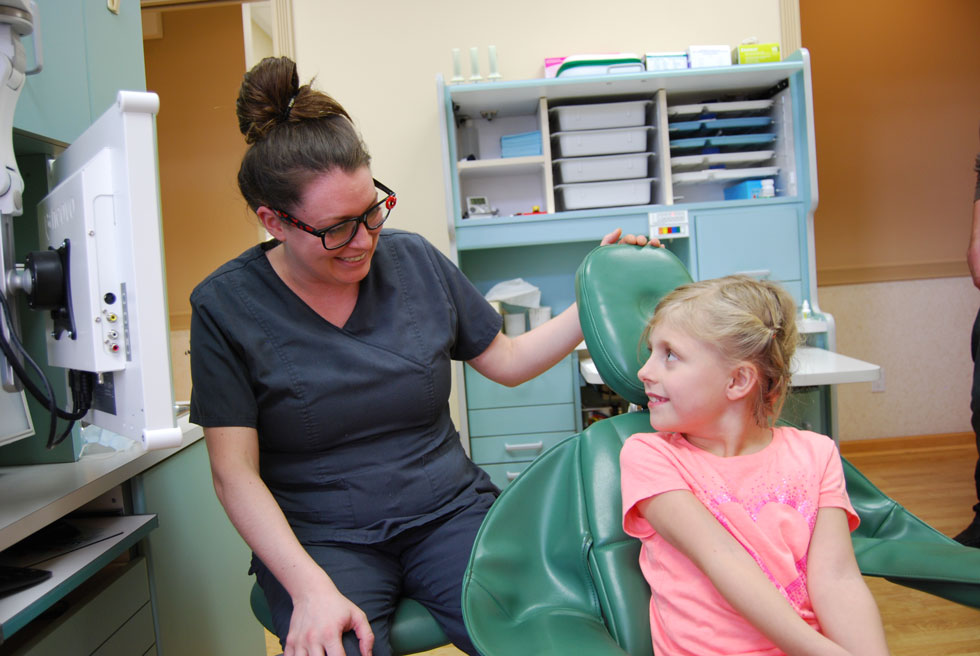For Kids

Here are 3 reasons to take your child for dental exams:
- You can find out if the cleaning you do at home is working.
- Your dentist can find problems right away and fix them.
- Your child can learn that going to the dentist helps maintain health and prevent problems.
According to the Canadian Dental Association, infants should be assessed by a dentist within 6 months of the eruption of the first tooth or by their first birthday. Children in general should be seen by the dentist every six months to catch any small problems early.
We may want to take X-rays to make sure your child’s teeth are coming in the way they should and check for decay. Some people may be concerned with the possible health risks of X-Rays. These concerns are greatly exaggerated and are outweighed by the diagnostic benefits. In fact, people face greater risks from undetected dental problems than they do from dental X-rays.
Fluoride application is especially important for children as well to help prevent cavities. Fluoride is a mineral found in soil, water (both fresh and salt) and various foods. Fluorides are used by communities as a public health measure to adjust the concentration of fluoride in drinking water to an optimum level (community water fluoridation); by individuals in the form of toothpastes, rinses, lozenges, chewable tablets, drops; and by the dental profession in the professional application of gels, foams and varnishes.
Once your child has permanent molars, sealants will be typically recommended to help reduce the chance of tooth decay. A sealant is a kind of plastic that is put on the chewing surface of the molars. The plastic seals the tooth and makes it less likely to trap food and germs.
It is crucial to understand the importance of baby teeth for your child’s future dental health. If your child gets a cavity in a baby tooth you may ask yourself: “why not just wait for it to fall out?”
There are many factors to consider:
- Some primary (or baby) teeth will be in your child’s mouth until age 12. The tooth that needs to be fixed may be one of those.
- Broken teeth or teeth that are infected can hurt your child’s physical health and/or the way your child feels about him or herself.
- If the decay spreads and the tooth needs to be removed before the adult tooth is ready to come in, your child’s teeth may move and require much bigger work when they are older.
If a baby (or primary) tooth does need a filling, the dentist removes the decay and “fills” the hole with metal, plastic or other material. A filling can be a cheap and easy way to fix a problem that could be painful and cost much more later.
Your dentist can also tell you if crooked or crowded teeth could cause problems. Sometimes crooked teeth will straighten out on their own as the child’s jaw grows and the rest of the teeth come in. If they do not straighten out, your child may have a bite problem (also known as malocclusion).
This can cause problems with eating and with teeth cleaning. It can also affect the appearance of your child’s smile and make them feel self-conscious. If necessary we can refer your child to an orthodontist.
